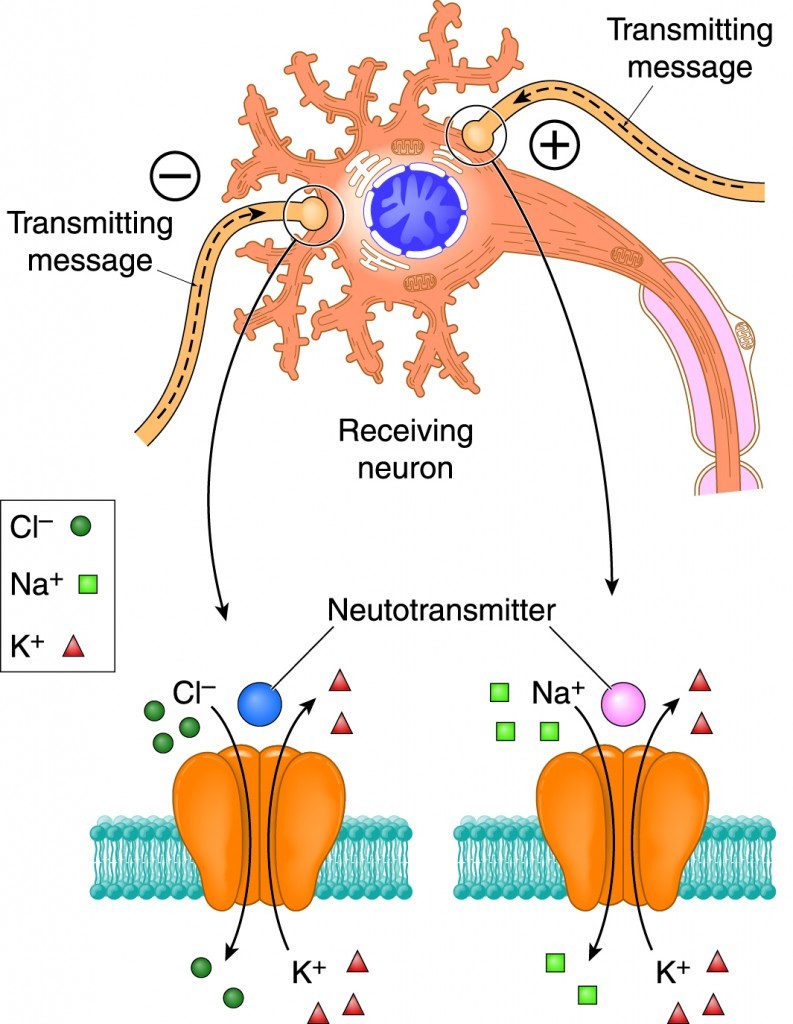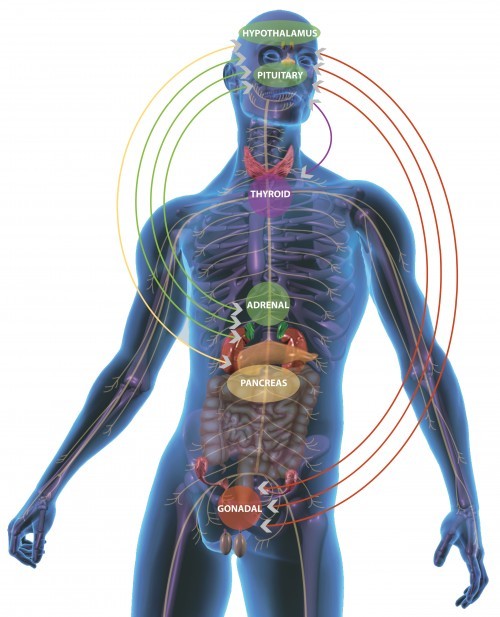Overview
We’ve all heard the saying, “When Mom’s not happy no one is happy.” A parent’s struggle with emotional imbalance affects not only the parent but the entire family. Depression, anxiety and mood swings are not something you can just “snap out of.” Science proves these disorders can be caused by an imbalance of brain chemicals, along with other mitigating factors.
Treatment usually includes rounds of psychotherapy or treatment with an array of pharmaceutical drugs. Today, clinical depression is the leading cause of disability with 20 million Americans suffering and 30 million pharmaceutical drugs prescribed. Sadly, depression is only one of many symptoms observed when there are neurotransmitter imbalances.
What is a neurotransmitter?
The brain makes chemical messengers called neurotransmitters. Neurotransmitters are produced and stored in the brain and are
released into action when the brain cells are electronically activated. They are responsible for every thought, mood, pain and pleasure sensation we feel. They control our energy level, our appetite and the foods we crave. Neurotransmitters even regulate how well we sleep as well as our sex drive.

Psychological stress and physiological changes can cause neurotransmitter deficiencies or imbalances; likewise, the neurotransmitter deficiency or imbalance can cause psychological changes. Neurotransmitters can be easily measured by specialized noninvasive laboratory testing.
Thinking of it this way: it is common to measure thyroid levels before prescribing medication and to test a diabetic’s blood sugar before adjusting the dose of insulin. Therefore, before treating an individual with neurotransmitter imbalances, it is important to identify their specific levels in order to recommend the best therapeutic support.
Neurotransmitters and hormones commonly measured are serotonin, dopamine, GABA, nor epinephrine, epinephrine, glutamate, cortisol, DHEA and thyroid. A deficiency of any particular neurotransmitter not only affects neuronal function but also endocrine function anywhere in the body.
Our endocrine system is considered primary and critical to all metabolic function. Glands such as the thyroid, the adrenals, the ovaries and the testes all take direction from the brain. There are many conditions that negatively impact hormone levels, and when one hormone is imbalanced, there is a tendency for many other hormones to follow suit.
Correction of imbalanced hormones is important but not always sufficient. Correction of imbalanced neurotransmitters, on the other hand, is imperative if clinical progress is to be made. Determining which neurotransmitters are low and which are high should precede clinical intervention.
For instance, combining poor diet with a stressful life-style is a recipe for neurotransmitter imbalances. The types of food we crave (starches, chocolate or sweets) and the time of day we crave them (late afternoon or evening) may characterize specific neurotransmitter deficiencies. In fact, serotonin depletion is one of the most common neurotransmitter imbalances in our culture.
Common symptoms/conditions of serotonin/dopamine imbalances include:

• Anxiety and panic attacks
• Insomnia
• Fatigue
• Strong craving for sweets
• Depression
• Difficulty concentrating
• Headaches (including migraines)
• Low motivation
• Chronic pain
• ADD
• Irritability and anger disorders
• PMS
• Seasonal affective disorders
• Addictions
• Decreased sex drive
What causes neurotransmitter deficiencies?
Weight Loss Dieting
Dieting is the most common cause of self-induced neurotransmitter deficiencies. Protein deficient diets may not supply adequate tryptophan, which is necessary for serotonin production. Carbohydrate is necessary to deliver tryptophan to the brain for serotonin production. High protein/low carbohydrate diets are a two-fold problem – there is not enough insulin and too much amino acid competition, which restricts the basic building blocks needed to produce enough neurotransmitters.
Studies from major universities, including Harvard, MIT and Oxford, have documented that women on diets significantly deplete their serotonin within three weeks of dieting!
This induced serotonin deficiency eventually leads to increased cravings, moodiness and poor motivation, which all contribute to rebound weight gain – the common yet unfortunate consequence of dieting. Diets may also be deficient in B-vitamins and other necessary nutrients. Folic acid, B6, and magnesium are all required in the process of serotonin production. Therefore, it is so important to see a health care professional for your weight loss program where you have the opportunity for neurotransmitter support that can help ensure successful weight loss with a healthy program specifically designed for you.
Certain Medications
Long term use of diet pills, stimulants, pain pills, narcotics and recreational drugs can deplete neurotransmitter stores. Diet pills (like phen-fen , phenteramine) use up large amounts of dopamine and serotonin, which can result in “rebound” appetite control problems, low energy, unstable moods and a sluggish metabolism.
Prolonged Emotional or Physical Stress
The human body is designed to handle sudden, acute or short bouts of stress. Prolonged chronic stress takes its toll on the “fight or flight” stress hormones and neurotransmitters. Eventually, these become depleted and coping becomes more difficult.
Aging
Sixty percent of all adults over the age of 40 have some degree of neurotransmitter deficiencies. Aging brain cells make smaller amounts of neurotransmitters. Also, as we get older, the body does not respond as well to them.
Abnormal Sleep
Stressors of all sorts can become chronic and cause adrenal fatigue. Many neurotransmitters are responsible for proper sleep, especially serotonin and are productduring REM sleep around 2 to 3 am when serotonin converts to melatonin, the sleep hormone. When serotonin levels are low melatonin level will also be low. Disrupted sleep occurs and fewer neurotransmitters are produced causing a sleepless night.
Heavy Metal Toxicity
Mercury, lead, aluminum, cadmium and arsenic are major neurotoxins. Chemical pesticides, fertilizers, certain cleaning agents, industrial solvents and recreational drugs cause damage to the brain cells and decrease neurotransmitter production.
Inflammation
Any condition ending in “it is,’ such as sinusitis, gastritis or arthritis is an inflammatory condition. Inflammation interferes with the conversion of tryptophan to 5-HTP which is used in the body’s production of serotonin.
Hormonal Imbalance
If hormones are deficient or are off balance, neurotransmitters do not function well. Premenstrual Syndrome (PMS) is a classic example of how low serotonin levels can shift each month. Mood, appetite and sleep can be severely disrupted one or two weeks before the menstrual cycle. Another neurotransmitter imbalance occurs during menopause when dramatic changes in mood, energy, sleep, weight and sexual desire occur.
Genetic Predisposition
Some people are born with a limited ability to make adequate amounts of neurotransmitters. They exhibit deficiency symptoms as children or young adults and often have relatives who suffer from significant mental illnesses. As they age, affected individuals experience even more profound symptoms and debilitation.
